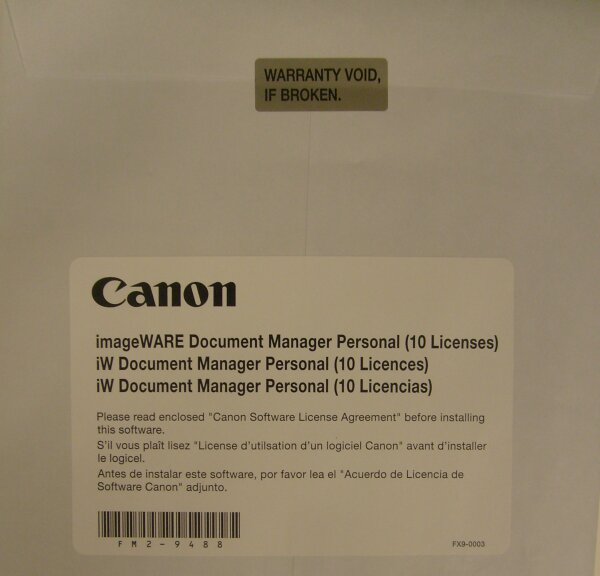Sponsor Thanks, ASSorted Out-of-placeness, & More
by in Feature Articles on 2009-02-27And now, a quick break from our sponsors. If there are any companies that you think would make a good sponsor, let me know. Otherwise, if you haven't done so already, please show your support by taking a look at what our sponsors have to offer.
Software Verification - software engineering tools for memory leak detection, code coverage, performance profiling, thread lock contention analysis and thread deadlock detection, flow tracing and application replay on the Windows Vista, 2003, XP, 2000 and NT platforms. Mosso - massively scalable hosting for .NET (2,3,3.5) PHP, Ruby, etc., with unlimited sites & mailboxes, simple online provisioning, and an enterprise clustered platform that's supported by real people. SlickEdit - makers of that very-impressive code editor and some pretty neat Eclipse and VisualStudio.NET tools and add-ins, some of which (Gadgets) are free. Check out this short video highlighting just one of SlickEdit's Visual Studio integration features. SoftLayer - serious hosting provider with datacenters in three cities (Dallas, Seattle, DC) that has plans designed to scale from a single, dedicated server to your own virtual data center (complete with racks and all) The Non-WTF Job Board - Powered by HiddenNetwork, it features some great job opportunities like:
- Level 78 Ruby Mage at Blue Frog Gaming (Akron, OH)
- Sr. PHP Developer at Zootoo.com (New York City)
- Web Dev Superstar at Skimbit (London)
- Programmer/Analyst at Penn State University
- Sr Web Developer at BidFire (Los Angeles)
- Sr .NET Engineer at Sentrana (Washington DC)
- Ruby on Rails Developer at VideoPros.com (Denver)
- Ruby Software Engineer at SweetyHigh.com (Manhattan Beach, CA)
- Java Enterprise Engineer at Knexus (Washington DC)
- Systems Admin/Developer at zinc Roe (Toronto)
- CRM support engineer at Greenpeace (Bangkok)
- QA Software Engineer at Bridgewater Associates (Westport, CT)
- Front-end Developer (HTML/CSS/JavaScript) at Playfire.com (London)

 Jan 09
Jan 09




 Although The University billed itself as “a leader on the forefront of Information Technology,” it was neither a leader nor anywhere near the forefront. At least, not any more. Its “next generation” hardware – graciously donated by a company known as Big Green – had slowly devolved to “last generation.” And then to “several generations old.” And then, finally, to ancestral. By that point, many students’ laptops rivaled that of the once great, Big Green hardware.
Although The University billed itself as “a leader on the forefront of Information Technology,” it was neither a leader nor anywhere near the forefront. At least, not any more. Its “next generation” hardware – graciously donated by a company known as Big Green – had slowly devolved to “last generation.” And then to “several generations old.” And then, finally, to ancestral. By that point, many students’ laptops rivaled that of the once great, Big Green hardware. The time had come for the national telecom we'll call Communicommco to shed its legacy systems and move into the future. In fact, calling them "legacy systems" is perhaps too charitable – these things were freaking dynasty systems. The dusty green screen terminals and ancient interface were being replaced with a cutting-edge the-future-has-arrived VB6 frontend. There was just one problem: the existing data had to be migrated in somehow.
The time had come for the national telecom we'll call Communicommco to shed its legacy systems and move into the future. In fact, calling them "legacy systems" is perhaps too charitable – these things were freaking dynasty systems. The dusty green screen terminals and ancient interface were being replaced with a cutting-edge the-future-has-arrived VB6 frontend. There was just one problem: the existing data had to be migrated in somehow.
 It was the mid-1990's and business was booming at the company that Terry worked at. It was booming so much that the existing process of entering an order — faxing in an order form torn out of an outdated-as-soon-as-it-was-printed catalog — was delaying things enough that it was costing the company some serious dough in missed sales. Needing a way to re-engineer the process without hiring an army of support staff, management decided on an innovative plan that would enable customers to place orders electronically without needing to contact customer service.
It was the mid-1990's and business was booming at the company that Terry worked at. It was booming so much that the existing process of entering an order — faxing in an order form torn out of an outdated-as-soon-as-it-was-printed catalog — was delaying things enough that it was costing the company some serious dough in missed sales. Needing a way to re-engineer the process without hiring an army of support staff, management decided on an innovative plan that would enable customers to place orders electronically without needing to contact customer service.
 The IT Support Department at Stephen S.'s company was divided into two distinct castes: helpdesk admins and system admins. And the differences between these two groups were many.
The IT Support Department at Stephen S.'s company was divided into two distinct castes: helpdesk admins and system admins. And the differences between these two groups were many. Flash back to the early 1990s when David S. was working for a large health care provider, maintaining an application that passed data files between two servers across a leased line.
Flash back to the early 1990s when David S. was working for a large health care provider, maintaining an application that passed data files between two servers across a leased line.
 Hitchcock River had gotten so badly polluted that going for a dip in it would get you one of two things: superpowers or some kind of nasty flesh-eating bacterial infection. And as awesome as it'd be to have X-Ray vision, it was just not worth the risk.
Hitchcock River had gotten so badly polluted that going for a dip in it would get you one of two things: superpowers or some kind of nasty flesh-eating bacterial infection. And as awesome as it'd be to have X-Ray vision, it was just not worth the risk. "I don't know, Gerald, this doesn't look right."
"I don't know, Gerald, this doesn't look right."
 Flash back to the early 90's when Remy P. was working as a system administrator for a major oil and gas company. Getting his hands dirty on a mix of Windows, VaxVMS, Alpha, and Solaris servers, Cisco routers, and even an old Xenix box that everybody prays never crashes, things were never dull, and today was certainly no exception.
Flash back to the early 90's when Remy P. was working as a system administrator for a major oil and gas company. Getting his hands dirty on a mix of Windows, VaxVMS, Alpha, and Solaris servers, Cisco routers, and even an old Xenix box that everybody prays never crashes, things were never dull, and today was certainly no exception.